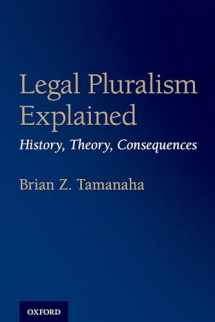
Legal Pluralism Explained: History, Theory, Consequences
Book details
Summary
Description
Legal pluralism involves the coexistence of multiple forms of law. This involves state law, international law, transnational law, customary law, religious law, indigenous law, and the law of distinct ethnic or cultural communities. Legal pluralism is a subject of discussion today in legal
anthropology, legal sociology, legal history, postcolonial legal studies, women's rights and human rights, comparative law, international law, transnational law, European Union law, jurisprudence, and law and development scholarship.
A great deal of confusion and theoretical disagreement surrounds discussions of legal pluralism--which this book aims to clarify and help resolve. Drawing on historical and contemporary studies--including the Medieval period, the Ottoman Empire, postcolonial societies, Native peoples, Jewish and
Islamic law, Western state legal systems, transnational law, as well as others--it shows that the dominant image of the state with a unified legal system exercising a monopoly over law is, and has always been, false and misleading. State legal systems are internally pluralistic in various ways and
multiple manifestations of law coexist in every society. This book explains the underlying reasons for and sources of legal pluralism, identifies its various consequences, uncovers its conceptual and normative implications, and resolves current theoretical disputes in ways that are useful for social
scientists, theorists, jurists, and law and development scholars and practitioners.


We would LOVE it if you could help us and other readers by reviewing the book
Book review



